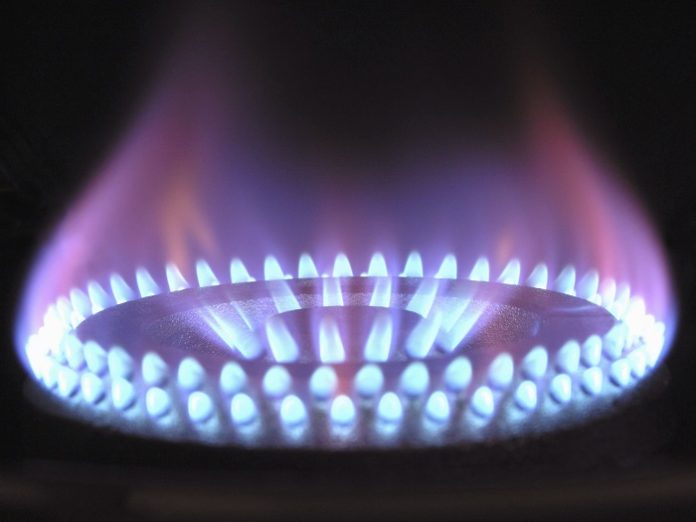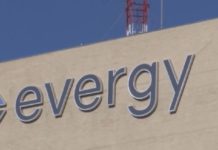The Kansas Senate took a step Thursday to cutting off a national trend toward banning natural gas hookups as local governments fight climate change and fossil fuel emissions.
The state Senate on Thursday voted 27-10 to approve a bill that would keep Kansas cities and counties from restricting public access to natural gas.
“The freedom of choice is being undermined by trends we are seeing around the country – starting in California and New York – that seek to limit or prohibit the use of natural gas by end users,” said Republican state Sen. Mike Thompson of Shawnee.
“By doing this, it would have a detrimental impact on the 870,000 households in Kansas that use natural gas and rely on it to heat their homes, to heat their water, to dry their clothes, run whole-house generators and many other uses,” Thompson said.
Pushed by the state’s leading natural gas companies, the legislation was driven by fear that ordinances banning natural gas could take hold in Kansas, leading to a patchwork of local laws regulating energy.
Two years ago, Berkeley, California became the first in the nation to ban the installation of natural gas lines in new buildings.
Now, there are believed to be 41 cities across California that have adopted similar bans and there have been similar efforts in Washington, New York and Massachusetts.
So far, Arizona, Tennessee, Oklahoma and Louisiana have all passed similar laws to what has been proposed in Kansas. Another four states have considered similar legislation.
No city in Kansas has banned natural gas, but there are concerns about a Lawrence city ordinance that calls for going to carbon-free energy sources by 2035.
The ordinance would apply to natural gas unless it’s produced by a carbon-free source.
Natural gas does not qualify as clean renewable energy because of its emissions and environmental impacts, city officials said.
That could change if natural gas utilities secure renewable sourcing like landfill methane, they said.
Opponents of the bill said that legislation went too far, arguing that it would keep cities and counties from pursuing clean-energy policies.
They said the legislation would keep local governments from making their own choices about energy policy and that it would be a setback to the city of Lawrence’s environmental efforts.
Democratic state Sen. Marci Francisco of Lawrence unsuccessfully tried to add an amendment to the bill that would allow local governments to take “reasonable” actions – such as adopting building codes – that might limit access to natural gas.
Thompson opposed the amendment, saying he thought Francisco’s proposal could be interpreted broadly and put the legislation at risk if it was enacted.
Francisco said she pushed the amendment because supporters of the bill indicated that they could accept the language.
Democratic Sen. Tom Hawk of Manhattan acknowledged having mixed feelings about the bill, noting that he wanted to promote energy efficiency while recognizing there’s still demand for natural gas.
“I support the consumer choice,” Hawk said. “Where I’m torn is that this bill takes away home rule or the local government choice that we always value.”
Hawk said he thought the bill was premature, noting that Kansas seems to be “a bit of a far cry” from the politics of Berkeley.
“I am not especially worried that our cities will jump out,” he said. I don’t see cities likely prohibiting their consumers from having that choice.”














